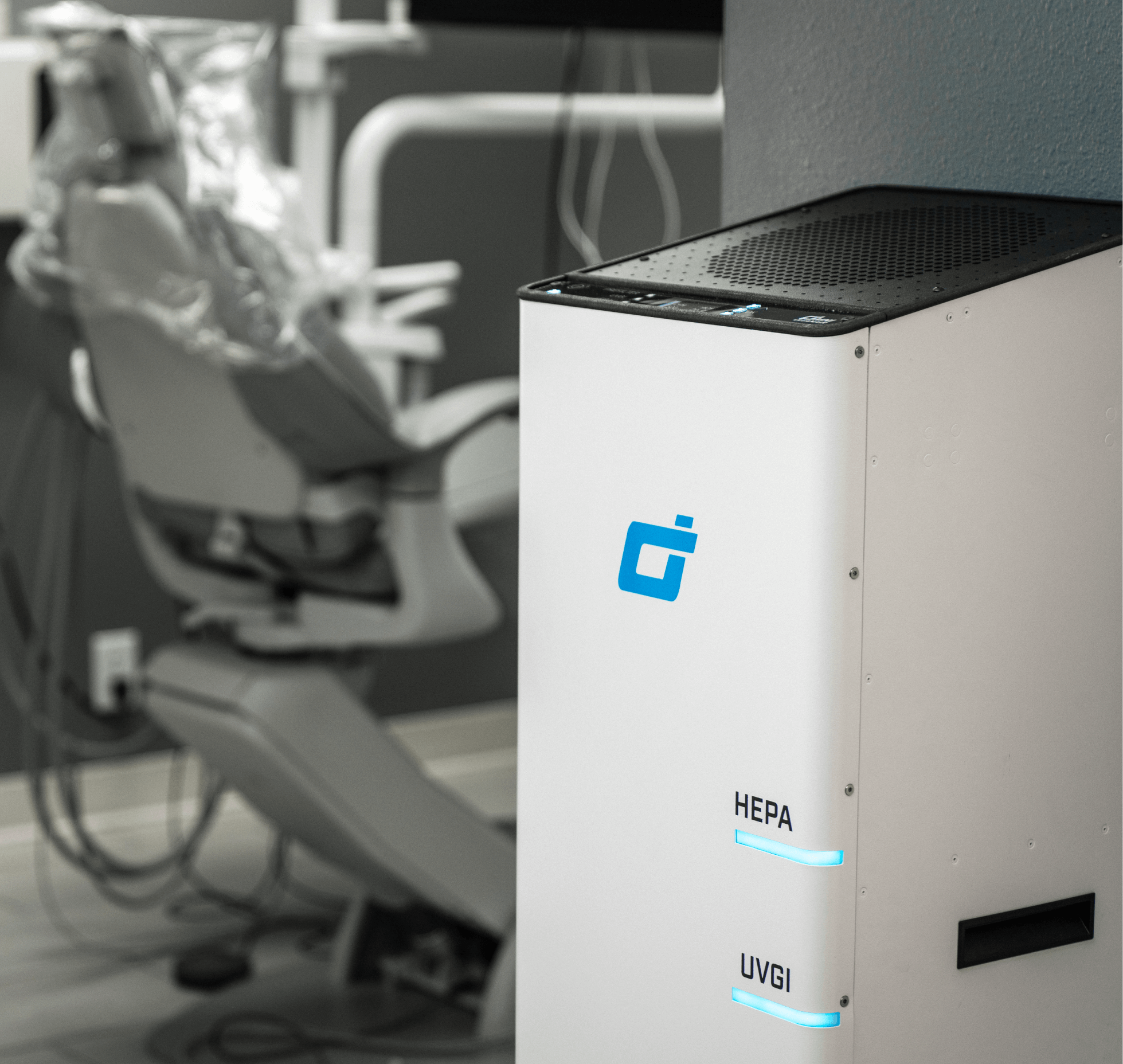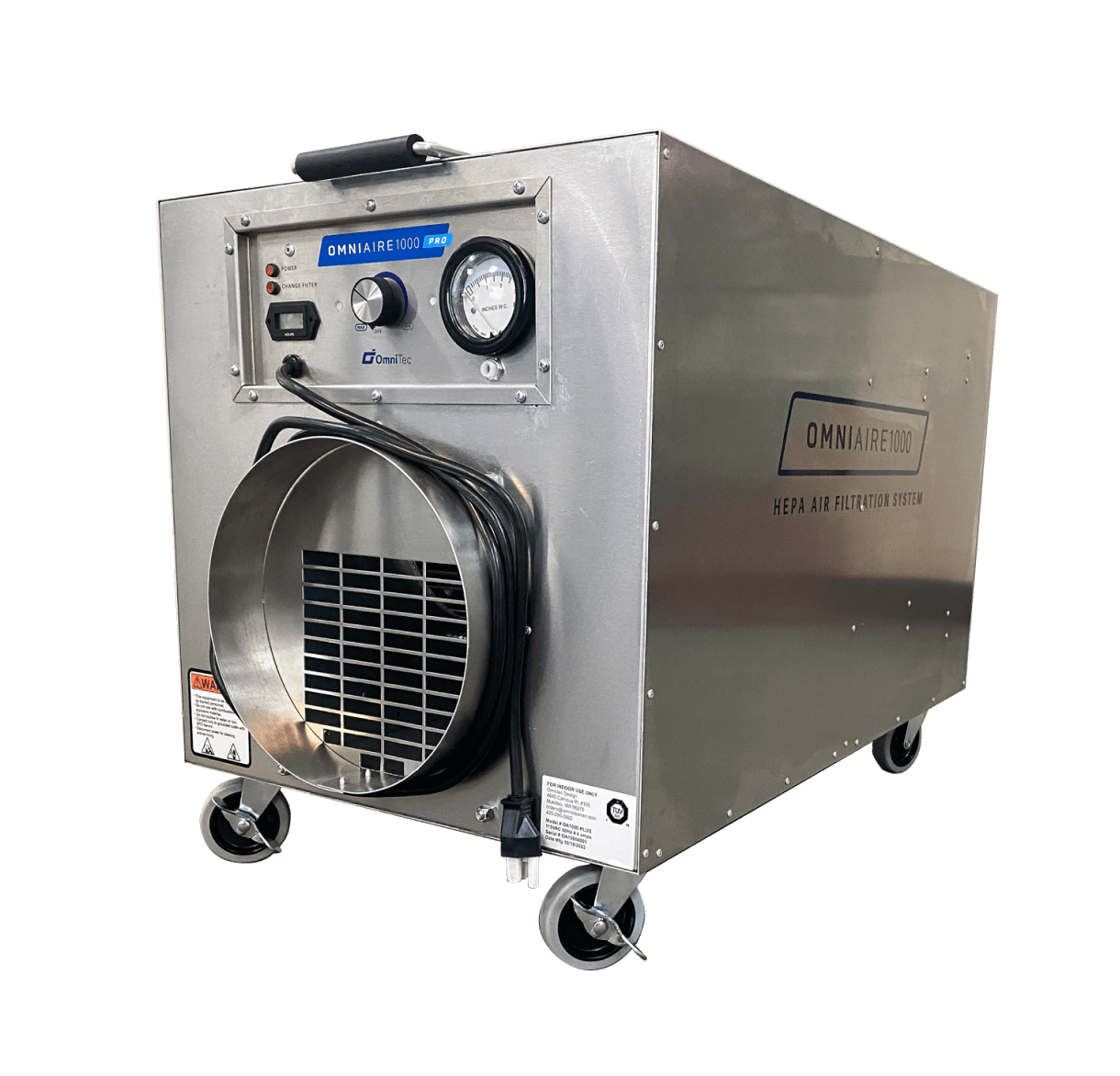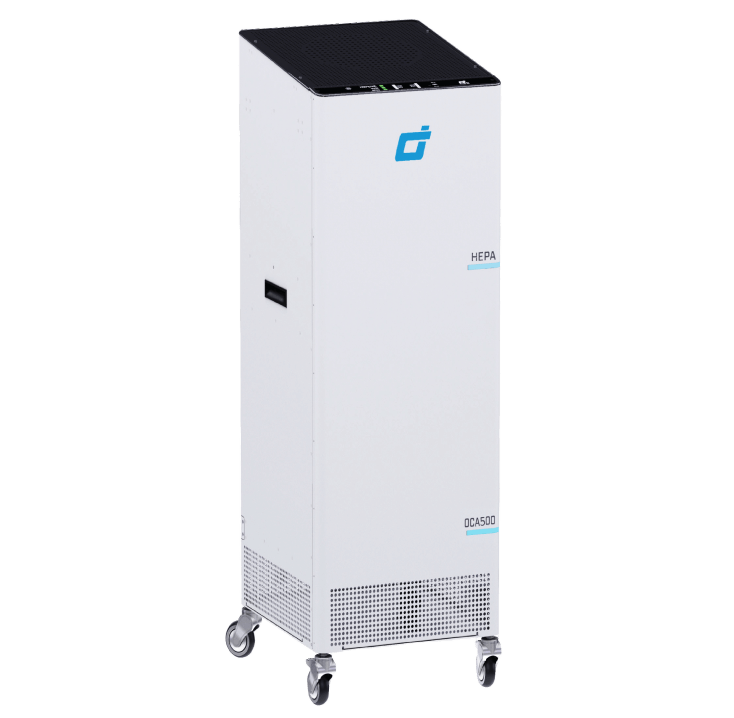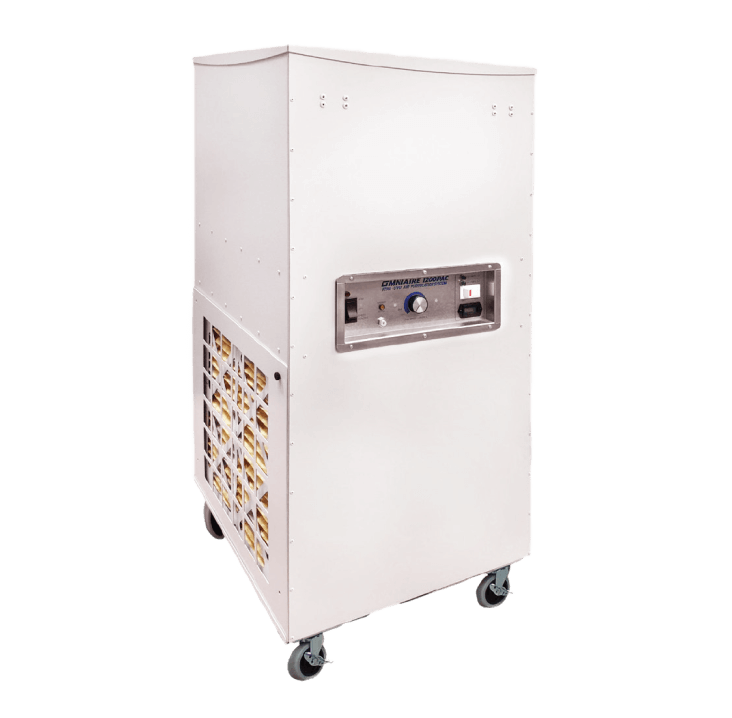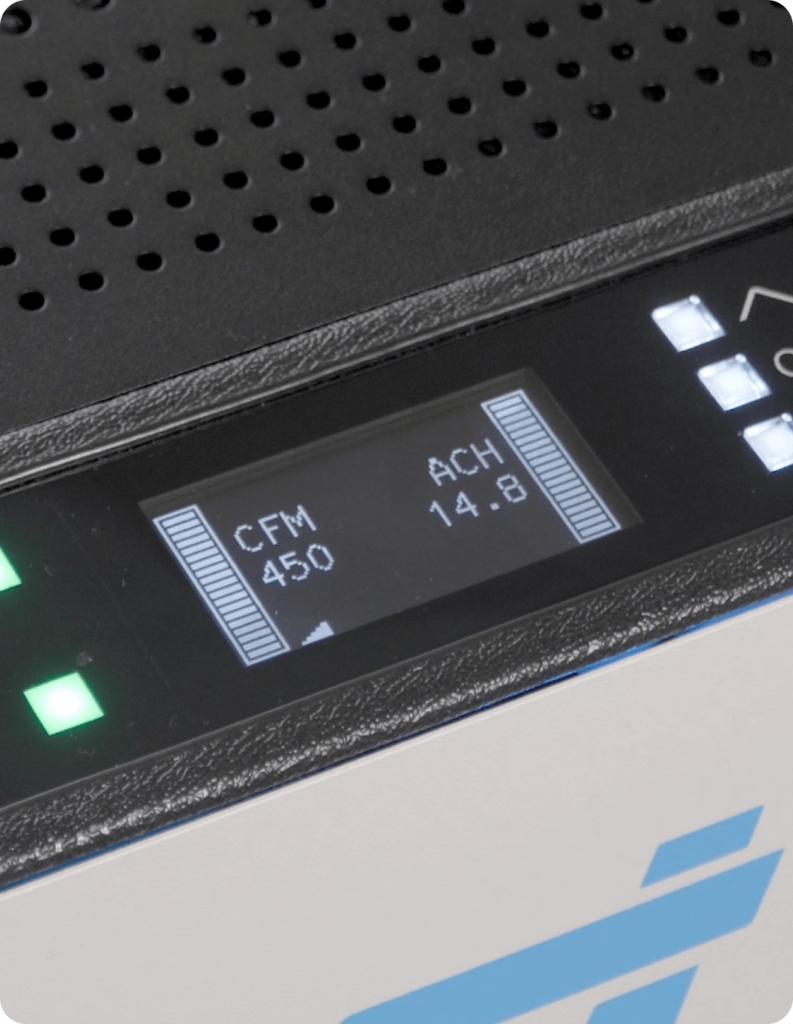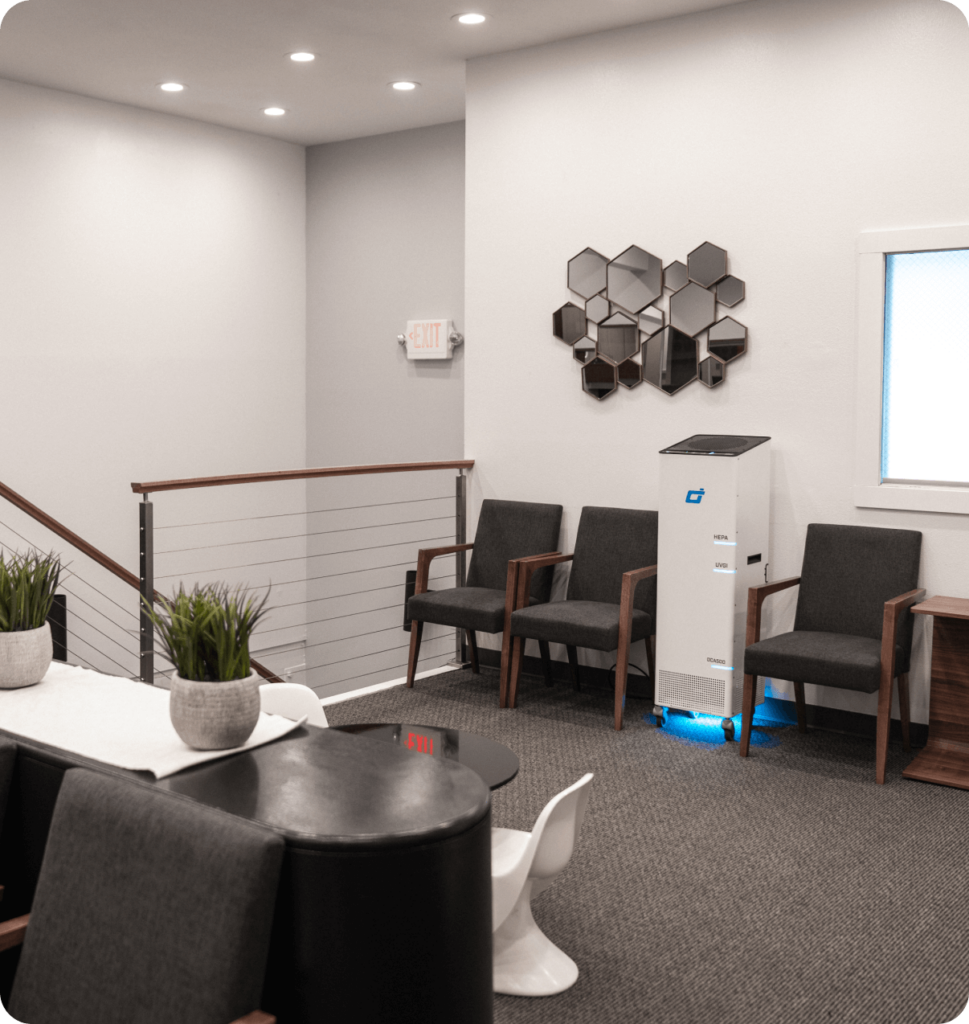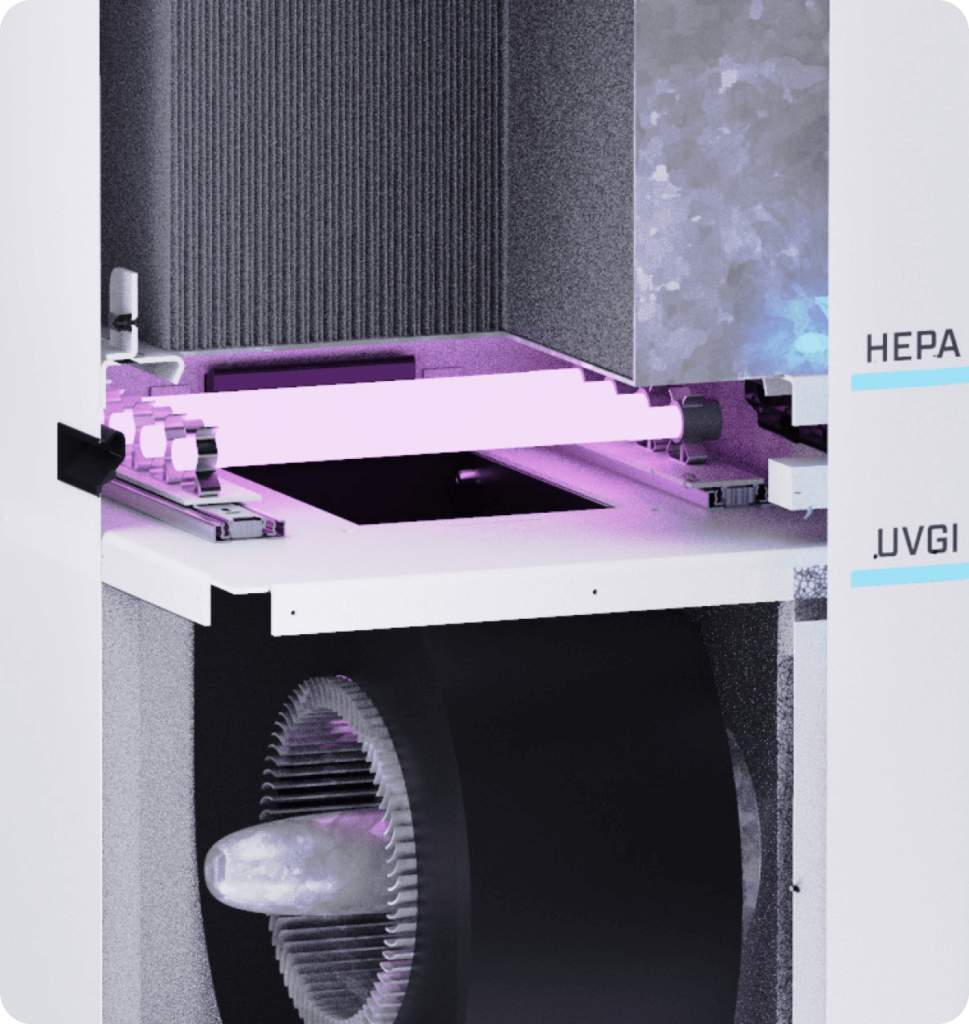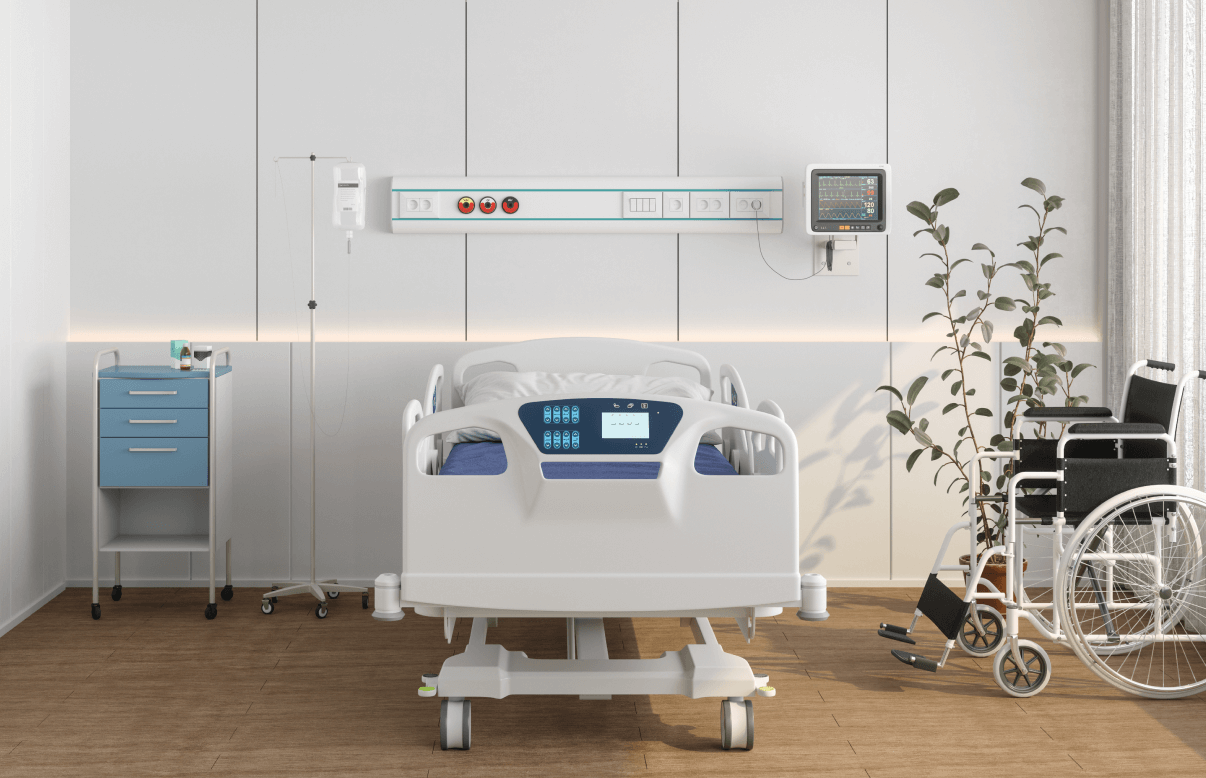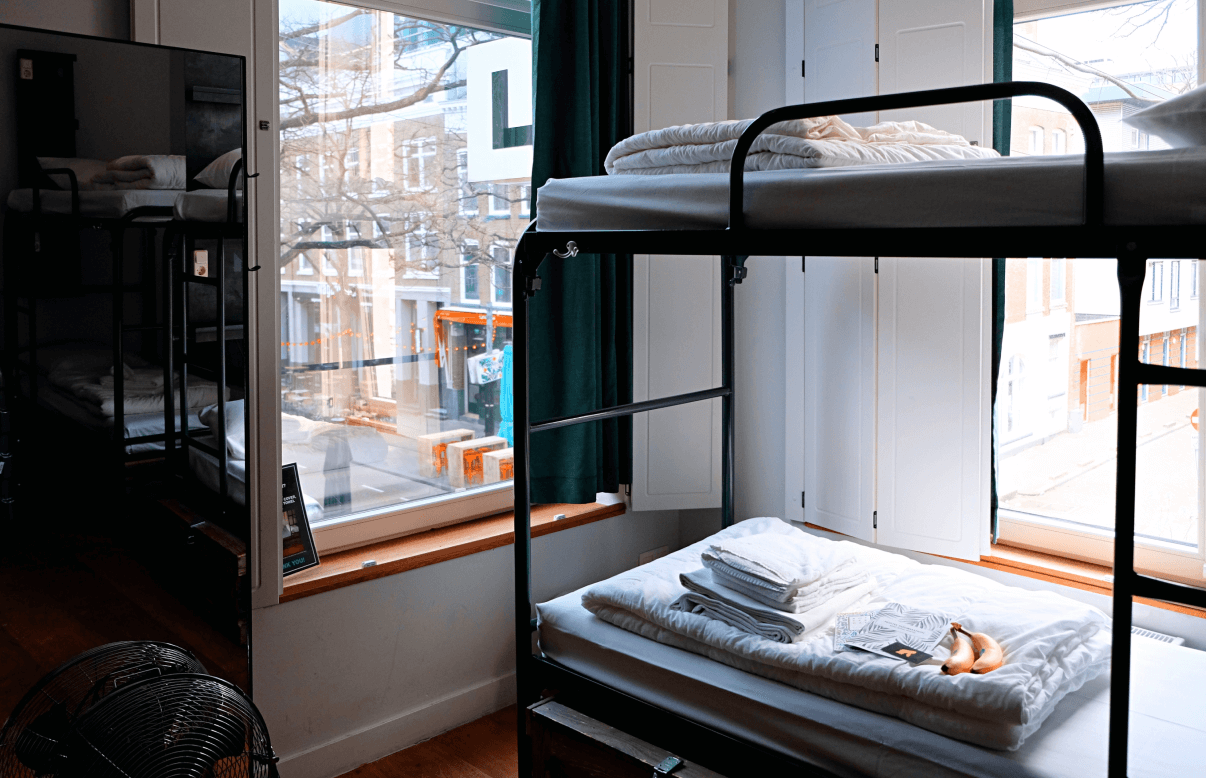The OmniAire 1000 Series is a family of compact, low-profile negative air machines, featuring 3 models with progressive features and increasing air flow rates, allowing you to match the right solution to your application needs. It is the only HEPA air filtration system with a high-performance, TrueCFM™* rating, in a compact, lightweight, and easy-to-maneuver design.
Compatible with a variety of true HEPA filters, MERV (Minimum Efficiency Reporting Value) rated pre-filters and activated carbon filters, any model in the series is configurable for a large array of projects and applications.
